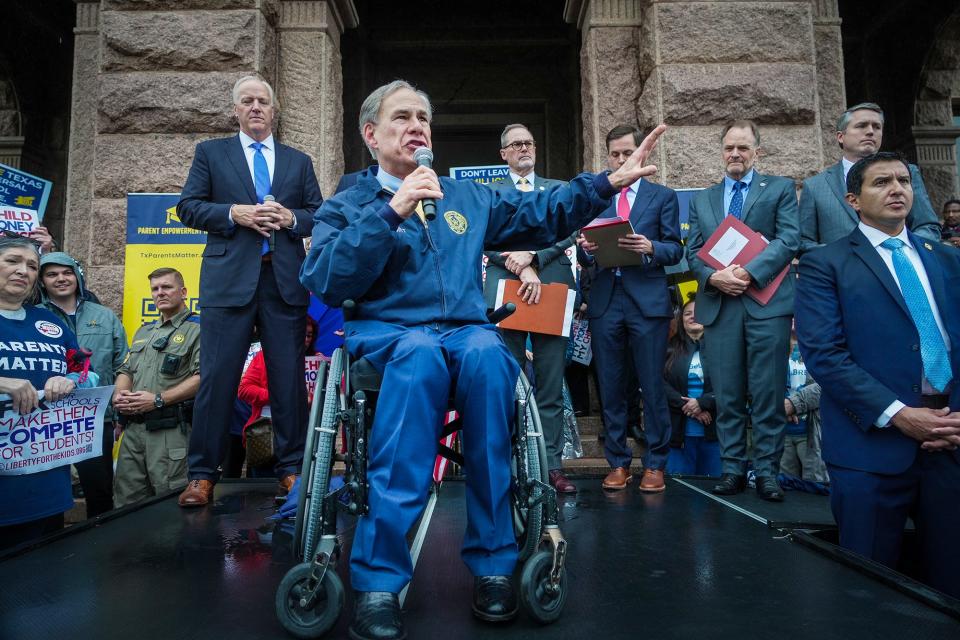A bill to prohibit testimony derived under hypnosis advances in Texas Senate
- Oops!Something went wrong.Please try again later.
The Texas Senate has advanced a measure that prohibits hypnotically induced statements from qualifying as admissible evidence during a criminal trial.
Similar to a proposal Gov. Greg Abbott vetoed in 2021, Senate Bill 338 would:
Apply to all statements made during or after a hypnotic session by a person who has undergone investigative hypnosis.
Not allow such statements to be presented during the guilt or innocence phase of a trial or during the punishment phase.
Not affect the admissibility of physical evidence or independent testimony that corroborates the commission of the offense.
Investigative hypnosis is a technique used by law enforcement to boost a witness's recollection of the people, conversations and environment related to a crime.
In 1987, the Texas Commission on Law Enforcement began forensic hypnosis training and testing as a way to enhance the ability of a witness to remember descriptions of suspects and the events surrounding crimes.
More: Lt. Gov. Dan Patrick cites apparently false claim in supporting Daniel Perry murder pardon
Previously based on the belief that human memory can be channeled "like a videotape," in the decades since the program was introduced in Texas and other states opponents have likened investigative hypnosis to "junk science."
"Rather than increase the accuracy of eyewitness recall and recognition, Johns Hopkins Medicine has warned that hypnosis does not work as a memory-recovery method and leads witnesses to be more confident in their memories, even when they are false," according to the bill's analysis.
The Department of Public Safety and the Texas Rangers suspended use of forensic hypnosis in 2021 after a Dallas Morning News investigation that highlighted the practice's questionable results.
In the 2021 legislative session, the Senate unanimously approved the same hypnosis proposal and only one House member was shown as present and not voting on the measure.
Shepherded by Sen. Juan "Chuy" Hinojosa this session, the bill advanced from the Senate Committee on Criminal Justice with unanimous support Tuesday.
"With so much uncertainty with forensic hypnosis, it is vital to protect the integrity of the criminal justice system by allowing that forensic evidence be supported by science, research and data so as to not wrongfully convict an innocent person," Hinojosa, D-McAllen, told the committee.
More: Greg Abbott wants to pardon a convicted killer. Here's how the process works in Texas.
However, Hinojosa's bill mirrors a previous bill Abbott rejected in 2021 based on a concern that the legislation would too broadly limit the testimony of a person in the aftermath of investigative hypnosis.
Specifically, Abbott objected to language that would not allow testimony from someone after the person had previously been hypnotically induced.

"The House sponsor’s amendment would grant lifetime immunity, for everyone who undergoes this type of hypnosis, from having any subsequent statements used in a criminal trial," Abbott wrote in his veto letter two years ago.
Currently, the Senate's proposal is set to be approved on the chamber's local and uncontested calendar, where bills that have unanimous support are often directed after committee.
An identical proposal in the House by Rep. Jeff Leach, R-Plano, is pending in the House Committee on Criminal Jurisprudence. House Bill 4271 has not been scheduled for a committee hearing.
This article originally appeared on Austin American-Statesman: Texas Senate advances bill to ban testimony derived under hypnosis

